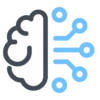Data clean rooms (DCRs) are secure, collaborative environments where multiple parties can share and analyze their data while maintaining strict privacy controls. This innovative approach enables organizations, such as brands and advertisers, to leverage aggregated datasets without exposing personally identifiable information (PII) or violating privacy regulations.
How DCRs Work
In a data clean room, each participant’s data remains isolated. Participants cannot access each other’s raw data, ensuring that sensitive information is protected. Security measures include encryption, access controls, and auditing processes to prevent unauthorized access and data breaches. Data clean rooms also utilize advanced privacy techniques such as differential privacy and anonymization.
These technologies help ensure that individuals cannot be re-identified from the combined datasets, thereby preserving user privacy while allowing for meaningful analysis. Participants in a DCR can impose strict controls on how their data is used and who can access it. This includes setting rules for data ingestion, matching identifiers (like hashed, masked or encrypted email addresses), and defining the types of analyses that can be performed.
Data clean rooms are particularly useful for Audience Analysis where brands can combine their customer data with that of partners to gain insights into audience behavior without compromising privacy. Advertisers can evaluate the effectiveness of campaigns by analyzing aggregated data from multiple sources while ensuring compliance with privacy laws, and organizations can enhance existing customer profiles by integrating additional data points from partners, leading to more targeted marketing strategies.
The structure of data clean rooms is designed to comply with various privacy regulations by anonymizing PII and limiting access to raw data, DCRs then provide a framework for organizations to collaborate on data analysis while respecting consumer privacy rights. This regulatory compliance is crucial in an era where consumer trust is paramount.
DCR’s and CMDM
Pretectum CMDM acts as a centralized repository for customer data, ensuring that all customer master data profiles are accurate and up-to-date. This centralized approach can be critical for the DCR concept, where accurate data is necessary for effective analysis and collaboration between parties.
By maintaining a single, reliable source of customer information, Pretectum CMDM helps prevent discrepancies and errors that can arise from fragmented data across multiple systems. This consistency is essential in DCRs to ensure that all parties are working with the same accurate datasets during analysis.
Pretectum CMDM enhances compliance with privacy regulations by ensuring that customer data is managed according to legal requirements. This is particularly relevant in DCRs, where privacy-preserving techniques are employed to protect personally identifiable information (PII) while allowing for collaborative analysis.
The CMDM system supports self-service account management, enabling customers to verify their identities and manage their profiles independently. This reduces the manual workload on teams involved in data clean rooms and minimizes the risk of errors related to outdated or incorrect customer information. By automating the management of customer profiles, Pretectum CMDM frees up resources that can be redirected toward more strategic activities, such as credit analysis and collections. This efficiency is beneficial in DCR environments where timely access to accurate data is critical for effective decision-making.
Pretectum CMDM can seamlessly integrate with DCRs, and allow organizations to upload their accurate customer data ahead of establishing or feeding the clean room environment. This integration ensures that the data used for collaborative analysis is not only current but also standardized, facilitating smoother operations within the clean room.
In summary, Pretectum CMDM could significantly enhance the capabilities of data clean rooms by providing a robust framework for managing customer data effectively.
Our focus on accuracy, compliance, and operational efficiency aligns perfectly with the objectives of DCRs, enabling organizations to leverage shared data while maintaining strict privacy controls and improving overall analytical outcomes. Contact us to learn more.


